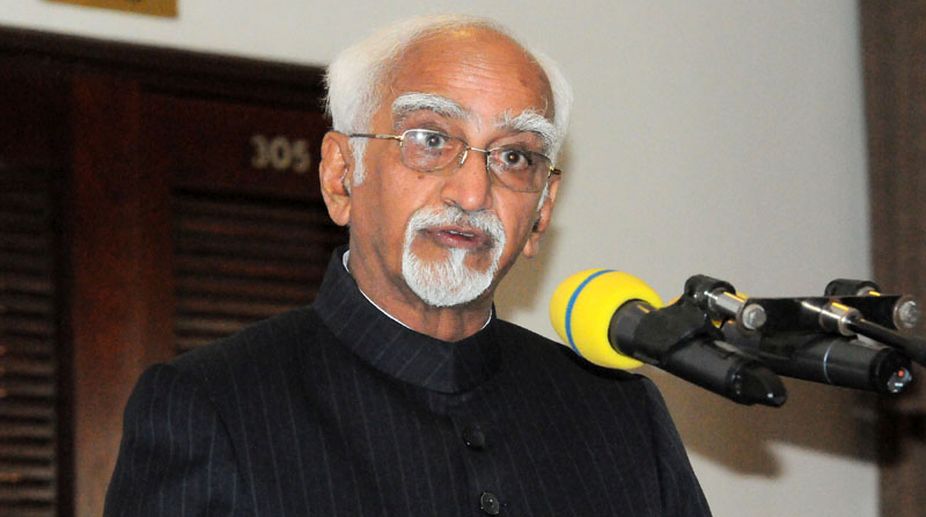Quoting India's first Vice President S Radhakrishnan, outgoing Rajya Sabha Chairman Hamid Ansari on Thursday warned that a democracy was likely to degenerate into tyranny if the opposition was not allowed to "criticise fairly, freely and frankly".
In his farewell remarks as he demitted office as Vice President, Ansari told Rajya Sabha members that the Upper House was a creation of the Constitution whose founding fathers wished it to portray India's diversity and to be a calibrated restraint on hasty legislation.
Advertisement
The Rajya Sabha, he underlined, should not be "a stumbling block in the way of action" and "is in fact an indispensable preliminary to wise action".
Ansari then quoted Radhakrishnan as saying: "A democracy is distinguished by the protection it gives to minorities. A democracy is likely to degenerate into tyranny if it does not allow the opposition groups to criticise fairly, freely and frankly the policies of the government.
"But, at the same time, minorities also have their responsibilities. Well, they have every right to criticise, their right to criticize should not degenerate into wilful hampering and obstruction of the work of Parliament. All groups, therefore, have their right and have their responsibilities."
Ansari said: "Deviation from the golden rule contributes neither to diligent policymaking nor to our claim to be a mature democracy based on rule of law."
The former diplomat said he fervently hoped that all sections of the House would seek to achieve this laudable objective.
Ansari recalled that when 10 years back he was welcomed in the House, an eminent leader — whom he did not identity — advised that no matter what the ruckus in the House, the Chair should never let his smile go off his face — "as a smile can conquer them all".
"I confess I had no difficulty in benefitting from this eminently sensible counsel," Ansari said.
He said the Chair was like an umpire in cricket or a referee in a hockey match "witnessing the play and the players, but without becoming a player. Its only source of reference is the book of rules".











